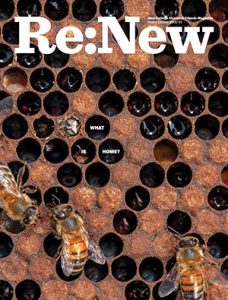Anne McGuire. Photo: Michael Barker.
![Portrait of a woman with long, dark hair and glasses, smiling at the camera [Anne McGuire].](http://renew.newcollege.utoronto.ca/wp-content/uploads/2019/04/AnneMcGuire-900px-landscape.jpg)
Dwelling in Disability
Anne McGuire from the Disability Studies stream proffers an expansive view of ability and access.
It’s a stretchy category, disability. Even the most cursory look at history will reveal that different societies across time and space have applied the label to a wide range of bodies and minds, defining human variation in many, sometimes opposing ways. Yet precisely that fluidity of definition may be the key to unlocking the opportunities contained within the category of disability. That, at least, is how Anne McGuire and many of her colleagues in the field of disability studies see it.
“Disability studies understands disability as a dynamic relation between a body and/or mind and its physical, cultural and historical environment,” McGuire explains. That is, a physical or mental impairment (we will return to that term later) is seen not so much as an individualized problem but as a cultural phenomenon woven into a complex web of social relations, relations that shape both larger societal understandings and specific embodied experiences of disability. In many ways, this means taking a collective approach to disability, and to accessibility.
McGuire teaches as an assistant professor in the Disabilities Studies stream housed within the Equity Studies program at New College. What began in 2005 as a collection of courses in Equity Studies has since grown and flourished: the stream proudly boasts a longstanding guest speaker series and an annual undergraduate journal called Knots, alongside enjoying great popularity among students. The piercing questions disability studies tends to ask about power, representation and justice fit well into a program like Equity Studies, dedicated to intersectionality (identifying how interlocking systems of dominance play a role in marginalizing groups in society) and interdisciplinarity (examining questions through the lens of different academic fields).
So what of the idea of the collective in disability studies? For one, importantly, disability studies is not the study of disabled people. Countering a long and painful history of pathologizing people living with physical and mental differences—deeming them “crippled,” “unfit” or “crazy” and thus casting them outside the protective bounds of so-called normal society—disability studies as a discipline centres the voices, perspectives and experiences of disabled people. Doing so not only allows us to more thoughtfully examine the impact of anything from health policies to building designs to the everyday use of language but also helps undercut the common deficit-based understanding of disability. “Mainstream culture,” McGuire asserts, frequently sees disability “through the lens of pure personal tragedy”: minds and bodies are imprisoned and restricted, they lack and suffer. Barely anything more. A more expansive view and more inclusive verbal description of these bodily experiences might better open our eyes to disabled people’s strengths, gains, and contributions, which is why, as hinted earlier, the term impairment has its pitfalls.
Of course, disabilities can and at times do cause pain, frustration, dissatisfaction and even sadness. Disabled people do suffer—sometimes from the health conditions or impairments themselves and sometimes, maybe more often, from the exclusion and discrimination they routinely face because of their difference. But the point is: suffering is not the whole story. Persons living with disabilities relate to their bodies and minds in multiple ways, not just as entities that supposedly do not function “properly.” As McGuire reminds us, “The experience of the body as more than one thing is something shared by all people, disabled or not.”
Commonalities go further still. In an interview on CBC Radio’s Tapestry in July 2018, Luke Anderson, the founder of StopGap, an organization that produces and distributes accessibility ramps, introduced his concept of all people as “T.A.B.s”—temporarily able-bodied. Short-term injuries, age, pregnancy, or even just a load of heavy bags might put any of us in the position of needing or appreciating assistive devices originally designed for disabled people: a kneeling bus, automated doors, a screen reader. For Anderson, it is not people who have disabilities but the places in which we live, work and play.
While McGuire agrees that any body can become disabled at any time, she hastens to point out that systemic injustices do put racialized groups and Indigenous and poor people at a higher risk of disability. This central question of power also explains the contested position of the medical in disability studies. Fully acknowledging the indisputable importance of medicine and health care for disabled people, disability studies critiques the facile medicalization of people living with disabilities. Medicalization reduces people to mere carriers of illness or inability; excellent medicine, on the other hand, helps people live and live well.
Because disability studies refutes the idea of disability as an individual problem, it also encourages us to think about access and accessibility as a collective task, an ongoing practice that we must all contemplate and negotiate. In her classes, McGuire attempts to translate different learning styles into pedagogical opportunities that benefit everyone and broaden perspectives. Elsewhere at NEW, in the D. G. Ivey Library, the librarian Aneta Kwak has spent the past 18 months diligently creating fully accessible online course readers for all courses offered through the college. The best part? They are available to anyone enrolled, irrespective of whether or not they identify as disabled. Some students, for example, simply retain information better when they hear it read aloud, so they make use of the accessible packs and a screen reader to facilitate their own learning.
Thinking of disability as a relation between bodies/minds and their environments, then, makes clear how much disability as a category and an embodied experience has to teach us about the culture in which we live. McGuire even suggests making ourselves so comfortable in and with disability as to consider it a home. Then, she says, we might be able to “treat it as a space in which to incubate and grow more robust justice movements that imagine and indeed build a more inclusive world.”
The time seems ripe for such intellectual probing. In November 2018, a student launched a petition to establish a separate Disabilities Studies program at the University of Toronto that would go beyond the offerings in New College’s Equity Studies stream. It will take time, expert discussions and a rigorous development and approval process to make such a program a reality in the future. In the meantime, McGuire, her colleagues and many students keep pushing at engrained definitions and perceptions, fostering change one small (but significant) step at a time.


![Portrait of a seated, smiling woman with box braids and folded hands [Lydia Gill in U of T’s Convocation Hall]; rows of seats visible behind her.](http://renew.newcollege.utoronto.ca/wp-content/uploads/2019/04/Lydia-Gill-900px-150x150.jpg)


![Portrait of a woman with long, dark hair and glasses, smiling at the camera [Anne McGuire].](http://renew.newcollege.utoronto.ca/wp-content/uploads/2019/04/AnneMcGuire-900px-landscape-150x150.jpg)

